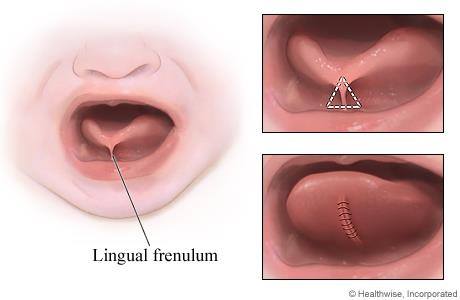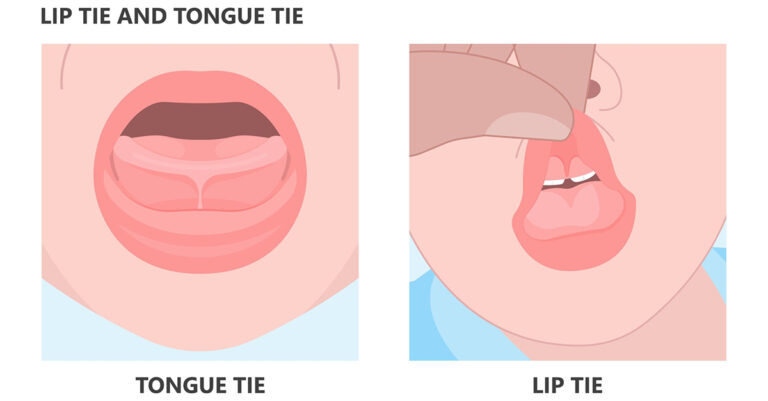Imagine watching your little one struggle to form words and express themselves, while other children chatter away effortlessly. As a parent, it’s natural to worry and wonder about the reasons behind such delays.
Could it be that a seemingly small physical condition is affecting your child’s ability to speak clearly? You might have heard of tongue tie and its potential impact on speech development. But does tongue tie really cause speech delay? This question is at the heart of many parents’ concerns.
By understanding the link between tongue tie and speech delay, you can make informed decisions for your child’s well-being. Dive into this article to uncover the truths, myths, and solutions surrounding tongue tie and speech development. Your child’s future communication skills could depend on it.
Tongue Tie Basics
Tongue tie, or ankyloglossia, is a condition present at birth. It affects the tongue’s range of motion. A short, tight band of tissue tethers the tongue’s tip to the floor of the mouth. This can impact speech, eating, and even oral hygiene. Understanding tongue tie basics helps in identifying potential speech delays in children. Parents and caregivers should know its symptoms, signs, and diagnosis process.
What Is Tongue Tie?
Tongue tie occurs when the lingual frenulum is too short or thick. This restricts the tongue’s movement. It can vary from mild to severe, affecting tongue function. Babies with tongue tie may struggle with breastfeeding. Older children might face issues with speech articulation.
Symptoms And Signs
Common signs include difficulty lifting the tongue. Trouble moving the tongue side to side is another sign. Some children might have a heart-shaped tongue tip. Speech problems can arise, like difficulty pronouncing certain sounds. Feeding difficulties might occur in infants. Parents might notice excessive drooling or gagging.
Diagnosis Process
Diagnosing tongue tie usually involves a physical examination. A healthcare professional checks the tongue’s appearance and movement. They evaluate feeding and speech issues. Sometimes, additional tests are necessary. This helps in understanding the severity of the condition. Early diagnosis aids in timely intervention.

Credit: www.ourfamilyworld.com
Speech Development In Children
Speech development in children is a fascinating journey. It’s a process filled with milestones and achievements. Parents often watch eagerly as their child begins to babble, then form words. This natural progression is crucial for effective communication. Understanding speech development can help identify any delays or concerns early on.
Stages Of Speech Development
Babies start with cooing and gurgling. These sounds lay the foundation for speech. By six months, they might babble. Babbling is a mix of consonant and vowel sounds. Around their first birthday, expect to hear first words. These are usually simple, like “mama” or “dada”. By age two, children form simple sentences. They can say phrases like “more juice” or “big truck”. By age three, a child’s speech becomes more complex. They begin using short sentences to express thoughts.
Factors Influencing Speech Development
Several elements affect how a child learns to speak. Hearing is vital. Children need to hear sounds to mimic them. Interaction is another key factor. Conversations with adults boost speech skills. Genetics also play a role. Some children might naturally develop speech faster. Environment impacts speech development too. A rich language environment encourages talking. Stress or anxiety can delay speech progress. A supportive and calm setting promotes learning.
Link Between Tongue Tie And Speech Delay
The connection between tongue tie and speech delay raises concerns. Tongue tie, medically known as ankyloglossia, restricts tongue movement. This can affect speech development. Parents often wonder if tongue tie leads to speech problems.
Potential Impacts On Speech
Tongue tie might hinder articulation. Limited tongue movement can make pronouncing words tough. Children may struggle with certain sounds. Sounds like “t”, “d”, “s”, and “z” can be challenging. Speech clarity might be affected. Speech therapists often evaluate tongue mobility in cases of speech delay.
Research Findings
Studies show mixed results. Some research links tongue tie to speech issues. Other studies find no significant connection. Experts debate the impact of tongue tie on speech. Early intervention may help. Research continues to explore this topic.
Case Studies
Real-life cases offer insight. Some children with tongue tie experience speech delay. After treatment, speech often improves. Each case is unique. Speech therapy may aid recovery. Parents report varied outcomes. Observing individual cases helps understand potential impacts.
Treatment Options
Speech delay in children might be linked to tongue tie. Treatment options include speech therapy and a minor surgical procedure. Early intervention can help improve speech development effectively.
If you’re worried about a possible speech delay due to tongue tie, understanding treatment options can ease your concerns. Various methods are available to address this issue, ranging from surgical procedures to therapeutic approaches. Each option has its own set of benefits and considerations, so it’s crucial to find the right fit for your child. Let’s dive into the different avenues you can explore.Surgical Interventions
In some cases, a minor surgical procedure known as a frenectomy is recommended. This involves snipping the tissue connecting the tongue to the floor of the mouth. The procedure is quick and often done with local anesthesia, minimizing discomfort. One parent shared that their child was talking more clearly just weeks after the surgery. Could this be the solution your child needs to overcome speech hurdles? It’s worth discussing with a healthcare professional.Therapeutic Approaches
Not all tongue ties require surgery; some can be managed with targeted therapy. Physical exercises can help improve tongue mobility. These exercises might include stretching the tongue or practicing specific movements. A friend found success using therapeutic approaches with her child, noticing significant improvements over a few months. These exercises often require consistency, but the results can be rewarding. Are you ready to commit to a daily routine that might change your child’s life?Role Of Speech Therapy
Speech therapy can be a valuable tool in addressing speech delays linked to tongue tie. A speech therapist can provide exercises tailored to your child’s specific needs. They can guide you in nurturing your child’s speech development. Imagine the joy of hearing your child articulate words more clearly and confidently. Speech therapy not only targets the physical aspects of speech but also builds your child’s self-esteem. Have you considered how this could impact your child’s future communication skills? Exploring these treatment options provides a roadmap for tackling speech delays associated with tongue tie. It’s about finding the right path for your child and being proactive in their development journey. What step will you take next?Debates And Misconceptions
The topic of whether tongue tie causes speech delay sparks debates and misconceptions. Some believe it directly affects speech development. Others argue that not all cases lead to delays. Understanding the complexity is crucial for informed discussions.
The topic of tongue tie and its potential impact on speech delay stirs up a lot of debates and misconceptions. Many parents find themselves tangled in a web of conflicting opinions, often unsure about what to believe. This section aims to clear the fog and provide a clearer understanding of the contentious points surrounding tongue tie and speech development.Common Misunderstandings
A prevalent misunderstanding is that every child with a tongue tie will experience speech delays. This is not always the case. While tongue tie can impact speech in some instances, many children with tongue ties do not face any speech issues at all. Another misconception is that tongue ties must always be treated immediately to prevent speech problems. However, not all tongue ties require surgical intervention. It’s crucial to evaluate each situation individually. Parents often assume that a speech delay is solely due to a tongue tie if one is present. Yet, speech delays can result from various factors, including hearing issues or developmental differences.Expert Opinions
Speech therapists and pediatricians offer valuable insights into the tongue tie debate. Many experts agree that while tongue tie can contribute to speech issues, it is not the sole cause. A comprehensive evaluation by a speech therapist is often recommended to assess the need for intervention. Some experts suggest a wait-and-see approach, especially when the tongue tie is not severe. They believe that as a child grows, their speech might develop naturally without any need for surgical intervention. Interestingly, some professionals emphasize that surgery might be more beneficial for feeding issues rather than speech. This highlights the need for a tailored approach based on individual circumstances.Evaluating Evidence
When considering evidence, it’s important to look at credible studies and not just anecdotal experiences. Research shows mixed results, indicating that the relationship between tongue tie and speech delay is not straightforward. A study might demonstrate improvement in speech post-surgery for some children, but it doesn’t imply that surgery is necessary for all. The key is to weigh the potential benefits against the risks and consider other developmental factors. Consider the story of a parent who decided against surgery after consulting with multiple specialists. Their child eventually overcame speech difficulties through therapy alone. This personal experience underscores the importance of informed decision-making. You might wonder, is it always better to act early, or could waiting be beneficial? This question doesn’t have a one-size-fits-all answer, but it encourages you to seek personalized advice.
Credit: www.facebook.com
Steps For Parents
Parents often worry if tongue tie causes speech delay. Understanding the steps to address this concern helps. This section guides parents through identifying issues and getting the right help. Supporting your child’s speech development is crucial.
Identifying Concerns
Observe your child’s speech patterns closely. Note any difficulty in pronouncing certain sounds. Watch for trouble with words involving “t,” “d,” “z,” or “s.” Pay attention to your child’s frustration while speaking. Check if they often avoid speaking in social settings. These signs could indicate a tongue tie issue.
Seeking Professional Help
Consult a pediatrician or speech therapist for an assessment. A specialist can evaluate the severity of the tongue tie. They may recommend a procedure called frenectomy. This simple procedure helps improve tongue movement. Early intervention is crucial for better outcomes.
Supporting Speech Development
Engage your child in regular conversations. Encourage them to express their thoughts and feelings. Read books together, emphasizing sound pronunciation. Use toys and games that promote speech skills. Be patient and supportive during their speech practice. Celebrate small improvements to boost their confidence.

Credit: therapyworks.com
Frequently Asked Questions
Can A Tongue-tie Delay Talking?
Yes, a tongue-tie can delay talking in children. It restricts tongue movement, affecting speech development. Early diagnosis and treatment can help improve speech clarity. Consult a speech therapist or pediatrician for assessment and advice.
What Are The Negatives Of Cutting A Tongue-tie?
Cutting a tongue-tie may cause pain, bleeding, or infection. It can lead to scar tissue, affecting movement. Potential nerve damage could impact sensation. Speech and eating problems may persist if not addressed properly. Always consult a healthcare professional before proceeding.
How Do You Know If A Tongue-tie Is Affecting Speech?
A tongue-tie may affect speech if there are difficulties with articulation, pronunciation, or limited tongue movement. Consult a speech therapist or healthcare professional for assessment and guidance.
Does Cutting A Tongue-tie Help With Speech?
Cutting a tongue-tie can improve speech in some cases. It releases restricted movement, aiding articulation. Consult a speech therapist or specialist to assess individual needs. Not all tongue-ties affect speech, so professional evaluation is essential for the best outcome.
Conclusion
Tongue tie can impact speech development in some children. It’s not always the cause of speech delay, but it can contribute. Early diagnosis helps in managing the condition effectively. Consulting a healthcare professional is crucial. They can offer guidance and treatment options.
Speech therapy might be recommended if needed. Every child is unique, so individual assessment is important. Parents should stay informed and observe their child’s speech progress. Being proactive and attentive can make a difference. Ensuring timely support can help children reach their full potential in communication skills.

